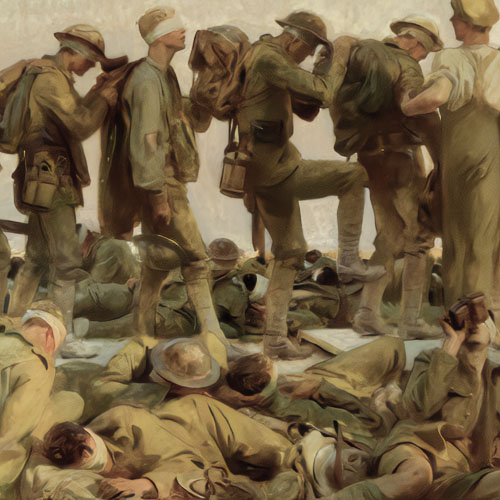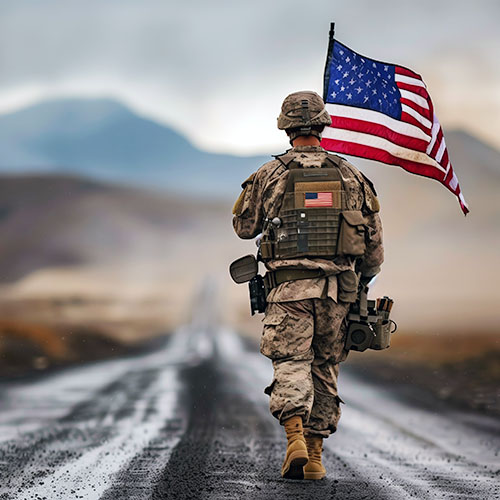A young soldier was murdered in April for simply trying to do her job and serve her country. Her life and memory are now spurring pushes for hard change in the military.
A Movement is Born
On April 22, 2020, midday on the sprawling Texas base of Fort Hood, a 20-year-old U.S. Army soldier named Vanessa Guillén went missing. While junior soldiers going AWOL is hardly unheard of at Fort Hood, or any other military base, that tends to happen before or after long weekends, not during Wednesday lunches. Further confusing the situation, Guillén’s military ID card, credit card and keys were found inside the 3rd Cavalry Regiment (3CR) armory, where she worked as a small arms mechanic and spent much of her workdays. Whatever this was, it wasn’t normal.
Guillén’s body wouldn’t be found until June 30, more than two months later, when day laborers working near the Leon River came across partial human remains (later confirmed to be Guillén) encased in cement and subsequently notified the police and military. Her suspected murderer — a fellow soldier based at Fort Hood named Aaron David Robinson — would kill himself with a gun that night in nearby Killeen, Texas, when spotted and approached by law enforcement.
A brutal, ugly tale made so much uglier by what did — and what didn’t — happen between April 22 and June 30.
Military CID (criminal investigation department) identified Robinson as a “party of concern” as early as April 28, according to The Washington Post, but never alerted officers in 3CR — who could have put Robinson on watch duty, thus keeping constant tabs on him as the investigation played out. This was just one sign of a lack of urgency and/or bureaucratic incompetence. Guillén’s family shared with investigators her claims of being harassed by Robinson and her plans to report him for sexual harassment, despite initial concerns about not being believed by her unit command.
Further, it took until April 28, nearly a week after Guillén disappeared, for CID to even interview Robinson, whose peculiar interest in Guillén was hardly unknown to 3CR commanders and soldiers. In more damning evidence of delay, it took CID until May 18 to interview two soldiers who saw Robinson struggling with a large supply box outside of the armory on April 22 — it would later be alleged that’s how he smuggled out Guillén’s body to a car after killing her in the arms room with a hammer.
Because of the slow, quiet nature of any military investigation, it’s unclear any public resolution to Guillén’s disappearance would’ve been found by now if her family had not decided to go public themselves. In May and early June, her mother, Gloria, and sisters, Mayra and Lupe, conducted interviews with local and national media, describing Vanessa’s patriotism and belief in service and begging for her safe return. This brought all kinds of pressure upon the Pentagon to find their missing soldier, pressure that wouldn’t have existed had her family not made the courageous choice to speak out.
Soon thereafter, investigators obtained cell tracking data and claimed it placed Robinson along the Leon River the evening of April 26. And finally, on June 19, CID interviewed Robinson’s girlfriend, Cecily Aguilar, who’s accused of helping Robinson encase Guillén’s remains in cement and then bury them. A few days later, authorities said she’d confessed, setting in motion the final act of murder and betrayal.
The particulars of just why the hell the investigation took as long as it did despite Robinson’s seemingly evident guilt from the get-go is, itself, now under investigation. It’ll be interesting to see what results from that. Also interesting, and more relevant to the purpose of this column, is a social movement that has sprung up in the wake of Specialist Guillén’s disappearance and death, known as “I Am Vanessa Guillén.”
Women military veterans and service members are rallying around Guillen’s memory and family to draw attention to a slew of gender-related issues that continue to hamper the armed forces, specifically sexual assault. The movement began on Twitter and in op-ed pages, with veterans and writers like Ruthy Muñoz, Kayla Williams and Erin Kirk-Cuomo, among others, coming forward and speaking about their own times in uniform, serving a military that preaches taking care of all its servicemembers.
Some shards from their stories, from those lives, with the acknowledgement this is but a keyhole into the experiences of our sisters-in-arms:
“I woke up several times to male Marines over my bed and or touching me under my clothes. IN MY ROOM.”
“[My] complaints were ignored by my command and mocked by male peers in intimate, excruciating detail.”
“Vanessa Guillén is you, she is me, and she is every one of us who has ever served our nation and endured sexual harassment. Now that Vanessa’s voice is silenced, we are her voice.”
Air Force veteran and activist Pam Campos-Palma soon organized these voices, writing an open sign-on letter entitled “#JusticeForVanessaGuillen.” It did not quibble. It called for a congressional investigation into her disappearance, the resignation of every person in Guillen’s chain of command, as well as the temporary mass halting of military recruitment until “the systemic problems with sexual assault and sexual harassment in military culture are effectively addressed.”
Now, some of those goals might read as impractical, but that’s a classic negotiating move, one activists have learned in our treacherous times to utilize: getting some progress requires demanding the moon. Regardless, the movement has now reached Capitol Hill with the I Am Vanessa Guillén Bill, which would allow servicemembers to file claims of sexual harassment and assault to an independent agency, unaffiliated with their unit — a reform activists have been pushing for years.
Though still in its beginning stages, the bill has received bipartisan support and is cosponsored by Republican Markwayne Mullin and Democrat Tulsi Gabbard, a military veteran herself. And Guillén’s family presented a copy of the bill to President Donald Trump in July when they met with him to remember Vanessa and discuss opportunities for real change.
In a Zoom interview, Iraq war veteran Teresa Fazio spoke with me about the fight for genuine equality within the ranks. Fazio’s the author of the new memoir Fidelis, which chronicles her own experiences with combat, romance and gender dynamics in the Marines.
While careful not to equate her journey with what happened to Guillén, Fazio sees both the murder and the subsequent movement as “more examples of the constant back-and-forth nature of all this … a woman graduates Ranger School, but then Specialist Guillén gets killed for just doing her job. Women finally get the opportunity to serve in the combat arms branches, then there’s the Marines United scandal.” (When a Facebook group devoted to sharing explicit photos and videos of female Marines was uncovered.)
Fazio sighed and paused for a few seconds before continuing: “All these inequalities that we’ve lived in and seen propagated are now being brought to bear. That’s not nothing. That’s one measure of progress. But a woman didn’t have to die for this to be noticed. She was a soldier. She was one of us.”
Matt Gallagher is a U.S. Army veteran and the author of three books, including the novel Empire City.























